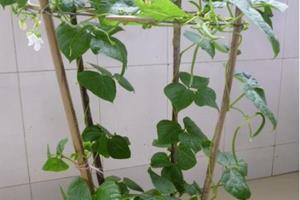How to raise potted tulips? what are the breeding methods?
Tulip is no stranger to us. It is the national flower of Turkey, Kazakhstan and Holland. Its colors are varied and its unique appearance is very attractive. A pot of tulips at home will make people feel pleasing to the eye. So, how to raise potted tulips? What are the cultivation methods?

The cultivation methods of potted tulips can be seen from the following six aspects:
1. Soil: tulips require both water retention and air permeability, the salinity should not be too high, and the pH value should not be less than 6. The mixture of peat, mature soil and sand with 1 ∶ 1 ∶ 1 as cultivation medium has a better effect.
2. Sunlight: sufficient sunlight is necessary for the growth of tulips. Insufficient sunlight will cause poor plant growth, cause sprouting, plant weakening, lighter leaf color and shorter flowering period. But tulips on the pot after more than half a month, should be properly shaded, in order to facilitate the growth of new roots. In addition, during germination, the elongation of flower buds is inhibited by light. Shading can promote the elongation of flower buds and prevent the early vegetative growth from growing too fast. After emergence, light should be increased to promote plant jointing, form buds and promote coloring. After the buds are fully colored in the later stage, direct sunlight should be prevented and the flowering time should be prolonged.
3. Temperature: tulips prefer warm winters and cool summers, and the optimum temperature for growth is 9-13 ℃. Strong cold resistance, can withstand the low temperature of-35 ℃ in winter.
4. Watering: water should be watered thoroughly after planting, so that the soil and seed bulbs can be fully and closely combined to facilitate rooting, water should be properly controlled after budding, leaves can be gradually elongated, water can be sprayed on the leaf surface to increase air humidity, and adequate water supply should be ensured at bolting and budding stages to promote the full development of flowers and proper water control after flowering.
5, fertilization: tulips do not have high requirements for fertilizer, if the growth potential is weak, you can apply some nitrogen fertilizer. When the root system is well developed, 2 kg of calcium nitrate is applied every 100 square meters, spread in three times, each time at an interval of more than one week.
6. Insect pests: the pathogens of tulip diseases and insect pests can be carried by the seed ball or by the soil, which mostly occur in the environment of high temperature and high humidity. the main diseases are stem rot, soft rot, broken color disease, quenching disease, blind bud and so on. most of the pests are aphids. Adequate soil disinfection should be carried out before planting, virus-free bulbs should be selected as far as possible, diseased plants should be dug up and destroyed in time, and fungicides should be poured once or twice in the growth process of the greenhouse, the effect is better; good ventilation should be maintained to prevent high temperature and humidity; when aphids occur, 3% natural pyrethrum can be sprayed 800 times.
Flowers are alive, planting a pot of tulips at home seems to add a lot of life to the family, and the color of tulips will also make our vision more colorful, so potted tulips are your best choice.
Related
- Wuhan Hospital Iron Tree Blooming Result Was Instantly Frightened by the Gardener Master
- Which variety of camellia is the most fragrant and best? Which one do you like best?
- What is the small blue coat, the breeding methods and matters needing attention of the succulent plant
- Dormancy time and maintenance management of succulent plants during dormancy
- Minas succulent how to raise, Minas succulent plant pictures
- What are the varieties of winter succulent plants
- How to raise succulent plants in twelve rolls? let's take a look at some experience of breeding twelve rolls.
- Attention should be paid to water control for succulent plants during dormant period (winter and summer)
- Watering experience of twelve rolls of succulent plants
- Techniques for fertilizing succulent plants. An article will let you know how to fertilize succulent plants.



